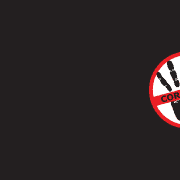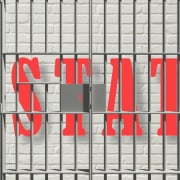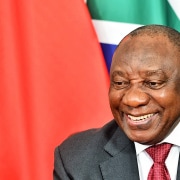|
Getting your Trinity Audio player ready...
|
By Darren Parker
First published on Engineering News
Corruption has long been an unhappy and increasingly harmful feature of the South African political, economic and business landscape. The extreme scale of this insidious problem came into sharp focus during the inquiry into state capture, however, which unearthed not only the far-reaching nature of the scourge but also the threat it posed to the very foundations of the country’s democratic institutions.
At the heart of the state capture scandals were a handful of influential families and their close ties to top government officials. The Gupta family, in particular, has come under intense scrutiny for its alleged involvement in corrupt practices and its wielding of undue influence over key government appointments and policies.
That said, the web of corrupt networks has proven to be much more complex than anyone imagined. State capture has had far-reaching consequences, especially for public institutions that are meant to serve the people and stimulate development. The erosion of the rule of law compromised the independence of regulatory bodies, and the appointment of officials based on personal connections, rather than merit, has contributed to a weakened democratic system.
It has become so severe that the African National Congress, the only party to govern South Africa after it became a democracy in 1994, has found itself at a crossroads, including at the ballot box.
Failure to fix the problem – and soon – could make the country’s socioeconomic decline unstoppable and imperil government’s reform agenda, as investors retreat and economic populism increases.
“If corruption is not arrested or stopped, the greatest damage will not be in the funds that are stolen . . . or the jobs that are lost; it will be in the damaging of our democracy. It will be in making our people have less confidence and have less trust in our democracy,” President Cyril Ramaphosa acknowledged at the National Anti-Corruption Dialogue 2023, held in Johannesburg on November 8.
The economic impact of state capture has been severe, as it diverts resources away from public welfare and infrastructure projects. State-owned enterprises (SOEs), such as Eskom, Transnet, and South African Airways – once vital engines of economic growth – have suffered repeated and ongoing financial losses at astonishing scales.
Gross mismanagement of SOEs has not only exacerbated the country’s economic challenges, which have become increasingly pronounced since the Covid-19 pandemic, but disrupted efforts to rein in debt, as more and more fiscal resources are set aside for bailouts.
Perhaps the most damaging effect of state capture has been the erosion of public trust in government. South Africans and foreign investors’ perceiving corruption and manipulation at the highest levels undermines their confidence in the democratic process and fosters a sense of disillusionment.
Business response
Despite few arrests and even fewer prosecutions, as well as the ongoing skirting of accountability by both politicians and implicated businesspeople, South Africa has not been entirely passive in the face of state capture and broad-based corruption.
Investigations, such as the much-publicised Judicial Commission of Inquiry into Allegations of State Capture, Corruption and Fraud in the Public Sector including Organs of State, better known as the Zondo commission or the state capture commission, have been crucial in uncovering the extent of the problem.
The findings and recommendations of such commissions, along with the establishment of the National Anti-Corruption Advisory Council (NACAC), and the development of the National Anti-Corruption Strategy (NACS) 2020 to 2030, could, eventually, assist in providing a roadmap for safeguarding key democratic institutions and, potentially, restoring order to public procurement.
Given that it always takes at least two bad actors, the role of business, particularly organised business, is seen as particularly crucial in instituting the necessary guardrails.
In September, Business Leadership South Africa (BLSA) announced that it had provided funding for the Gordon Institute of Business Science to produce an anti-corruption working guide for South African companies.
When releasing the guide, CEO Busisiwe Mavuso said that combating crime and corruption, improving ethical conduct, and promoting the rule of law were among BLSA’s top priorities and were essential to improving the business environment.
The guide is based on the detailed findings of the Zondo commission, setting out an approach that is designed to help companies build their resistance to corruption.
It asks whether the commission proved to be an inflection point in the fight against corruption.
“In decades to come, will we be able to look back at it as an important moment or merely a footnote in a sordid history? Other countries have managed to turn the tide against corruption, like Hong Kong and Singapore in the 1970s and Rwanda and Indonesia more recently. Will we be able to say the same of South Africa?” Mavuso asked.
Ramaphosa and Auditor-General Tsakani Maluleke said the state capture commission will, indeed, go down as a positive landmark in South African history, as it had been a watershed moment for the country.
“Not only did the commission lay bare the extent and the depth of state capture and corruption, but it also presented the country with the means to . . . remedy and deal with corruption, and also to create conditions that would prevent its recurrence,” Ramaphosa stated.
Maluleke said that, regarding the BLSA/GIBS anti-corruption guide, it was necessary to reconfirm the imperative to prioritise ethical conduct.
“It echoes what we believe at the Auditor-General’s office, which is that an improvement in service delivery, free from fraud and corruption, can only be enabled by stable, capable, co-operative, accountable, and responsive institutions. It’s clear that service delivery failures are happening because of failures in behaviour – and the behaviour of institutions flows entirely from the prevailing culture,” he said.
Maluleke said that corruption was becoming more sophisticated, involving multiple role-players in related institutions. Therefore, to improve their contribution to the fight against corruption, the public and private sectors needed to continuously revisit their audit strategies, invest in ongoing training, use sophisticated fraud data analytics and collaborate with other institutions that played distinct roles in the accountability ecosystem.
Mavuso added that, while corruption was often thought of as emanating from the public sector, prominent businesses were also deeply implicated in State capture.
Corruption has also plagued the private sector, such as multinational furniture company Steinhoff, sugar company Tongaat Hulett, and technology company EOH, in the past decade.
Proactive, not reactive
While investigations, arrests, prosecutions and convictions were important, they were not sufficient to stop the disease, said NACAC chairperson and councillor Professor Firoz Cachalia at the National Anti-Corruption Dialogue 2023.
He believes that a proactive approach was needed to deter and prevent such corruption from ever happening again.
“Those who have been guilty of corruption should be properly investigated and prosecuted and thereby . . . held to account. But the evidence before the Chief Justice also showed that corruption has become institutionalised and is getting systematic.
“When corruption reaches that point, law enforcement after the fact remains important but not sufficient. We need, as we now have, a strategy that focuses on corruption . . . that can attack corruption in the system proactively.”
Cachalia added that one of the critical success factors recognised internationally in the fight against corruption was the participation of the people in proactive anti-corruption initiatives.
“It is the people who have to hold their representatives accountable,” he declared.
Echoing Cachalia’s sentiments, Ramaphosa stated that “the fight against corruption is not only for the police, the Hawks, the National Prosecuting Authority, or our courts. It’s a societal fight. It is not only for the President . . . the state capture commission would most probably never have been appointed had the people of South Africa not stood up and said enough is enough”.
While the development of anti-corruption guides, such as those by BLSA and GIBS, is helpful, there needs to be a clear overarching strategy for South Africa to follow across all spheres of society – which is where the NACS comes in.
Cachalia said the strategy was built on the foundation of several aspirational elements that, if achieved, would result in corruption being all but stamped out.
First, the aim is to achieve an ethical, transparent, and accountable State. Second, the country should be filled with citizens who respect the rule of law and are empowered to hold those in power accountable. Third, those who are in power need to be willing to be held to account. Fourth, there should be zero tolerance of corruption in any sphere of activity.
“We are fighting to preserve our constitutional order. We are fighting to defend our democratic freedoms. We are fighting for the country’s hopes and dreams. So, let anti-corruption be prioritised as part of our national agenda, and that depends on society’s active participation,” Cachalia said.








